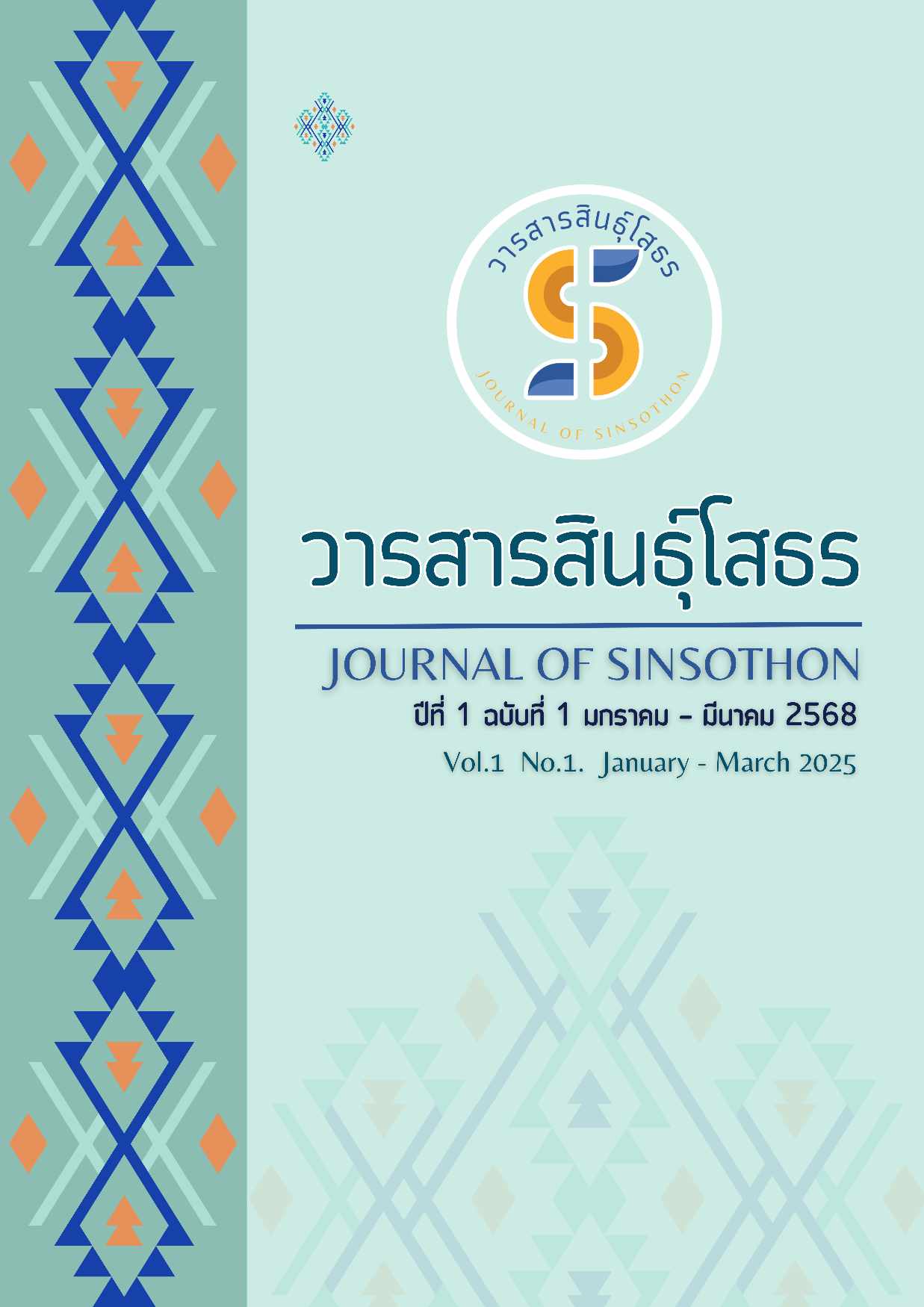Development of human potential according to the principles of the Noble Path
Keywords:
Human potential development, Noble path, BuddhismAbstract
This article aims to study the development of human potential according to the principles of the Ariya-Magga (Noble Eightfold Path), referencing the Tipitaka and academic works. The study found that the Ariya-Magga is an essential guide for human development, consisting of eight components: Right View (Samma-ditthi), Right Intention (Samma-sankappa), Right Speech (Samma-vaca), Right Action (Samma-kammanta), Right Livelihood (Samma-ajiva), Right Effort (Samma-vayama), Right Mindfulness (Samma-sati), and Right Concentration (Samma-samadhi) The results of the study indicate that applying the Ariya-Magga principles helps cultivate virtues, mental stability, and life balance. These eight principles can be effectively applied to various aspects of human potential development, such as fostering positive thinking, ethical development in the workplace, enhancing interpersonal relationships, and managing stress. Moreover, the Ariya-Magga can serve as a guide for solving social problems, such as reducing conflicts in organizations, supporting sustainable development, and enhancing moral consciousness at the individual and societal levels. Adhering to the Ariya-Magga helps individuals develop thoughts and behaviors conducive to balanced and valuable living.
References
กันตินันท์ ทองเต็ม. (2567). การเปรียบเทียบต้นทุนผลตอบแทนการปลูกทุเรียนตามเทคนิคการจัดการสวนทุเรียนของเกษตรกรในจังหวัดระยอง. เรียกใช้เมื่อ 8 ตุลาคม 2567 จาก https://kip.kmitl.ac.th/projects/clscves5600yyqnso21rb7uym.
จํารัส พรหมบุตร. (2565). การพัฒนามนุษย์ตามพุทธวิธี. Buddhist Psychology Journal, 7(1), 1-17.
พจนานุกรม ฉบับราชบัณฑิตยสถาน. (2554). คำว่าสัตว์. เรียกใช้เมื่อ 8 ตุลาคม 2567 จาก http://legacy.orst.go.th/?knowledges.
พระธรรมปิฎก (ป.อ. ประยุตฺโต). (2544). ชีวิตที่เป็นอยู่ดี ด้วยมีการศึกษาทั้ง 3 ที่ทำให้พัฒนาครบทั้ง 4 พิมพ์ครั้งที่ 2555. กรุงเทพฯ : โรงพิมพ์มหาจุฬาลงกรณราชวิทยาลัย.
พระธรรมปิฎก (ป.อ.ประยุตฺโต). (2555). ธรรมะกับการพัฒนาชีวิต (พิมพ์ครั้งที่ 8). กรุงเทพฯ : โรงพิมพ์มหาจุฬาลงกรณราชวิทยาลัย.
พระวีระยุทธ สุมงฺคโลและคณะ. (ม.ป.ป.). การพัฒนามนุษย์ตามหลักภาวนา 4 ในพระพุทธศาสนาเถรวาท. กรุงเทพฯ : มหาวิทยาลัยมหาจุฬาลงกรณราชวิทยาลัย.
มหาจุฬาลงกรณราชวิทยาลัย. (2539). พระไตรปิฎกฉบับมหาจุฬาลงกรณราชวิทยาลัย. กรุงเทพฯ : โรงพิมพ์มหาจุฬาลงกรณราชวิทยาลัย.
วัชราภรณ์ บุญญศิริวัฒน์. (2560). จิตวิทยาสังคม. เรียกใช้เมื่อ 8 ตุลาคม 2567 จาก https://www.psy.chula.ac.th/th/feature-articles/socpsy/.
สมเด็จพระพุทธโฆษาจารย์ (ป.อ. ประยุตฺโต). (2566). หลักแม่บทของการพัฒนาตน (พิมพ์ครั้งล่าสุด 2566). นครปฐม : โรงพิมพ์มหาจุฬาลงกรณราชวิทยาลัย.
เอกสิทธิ์ สนามทอง. (2562). การพัฒนาทรัพยากรมนุษย์ : แนวทางพัฒนาสู่ความสำเร็จขององค์การ. วารสารเกษมบัณฑิต, 20(1), 64-77.
Downloads
Published
Issue
Section
License
Copyright (c) 2025 Journal of Sinsothon

This work is licensed under a Creative Commons Attribution-NonCommercial-NoDerivatives 4.0 International License.
Authors who publish with Journal of TCI agree to the following terms:
- Authors retain copyright and grant the journal right of first publication with the work simultaneously licensed under a Attribution-NonCommercial-NoDerivatives 4.0 International (CC BY-NC-ND 4.0) that allows others to share the work with an acknowledgment of the work's authorship and initial publication in this journal.
- Authors are able to enter into separate, additional contractual arrangements for the non-exclusive distribution of the journal's published version of the work (e.g., post it to an institutional repository or publish it in a book), with an acknowledgment of its initial publication in this journal.
- Authors are permitted and encouraged to post their work online (e.g., in institutional repositories or on their website) prior to and during the submission process, as it can lead to productive exchanges, as well as earlier and greater citation of published work.






